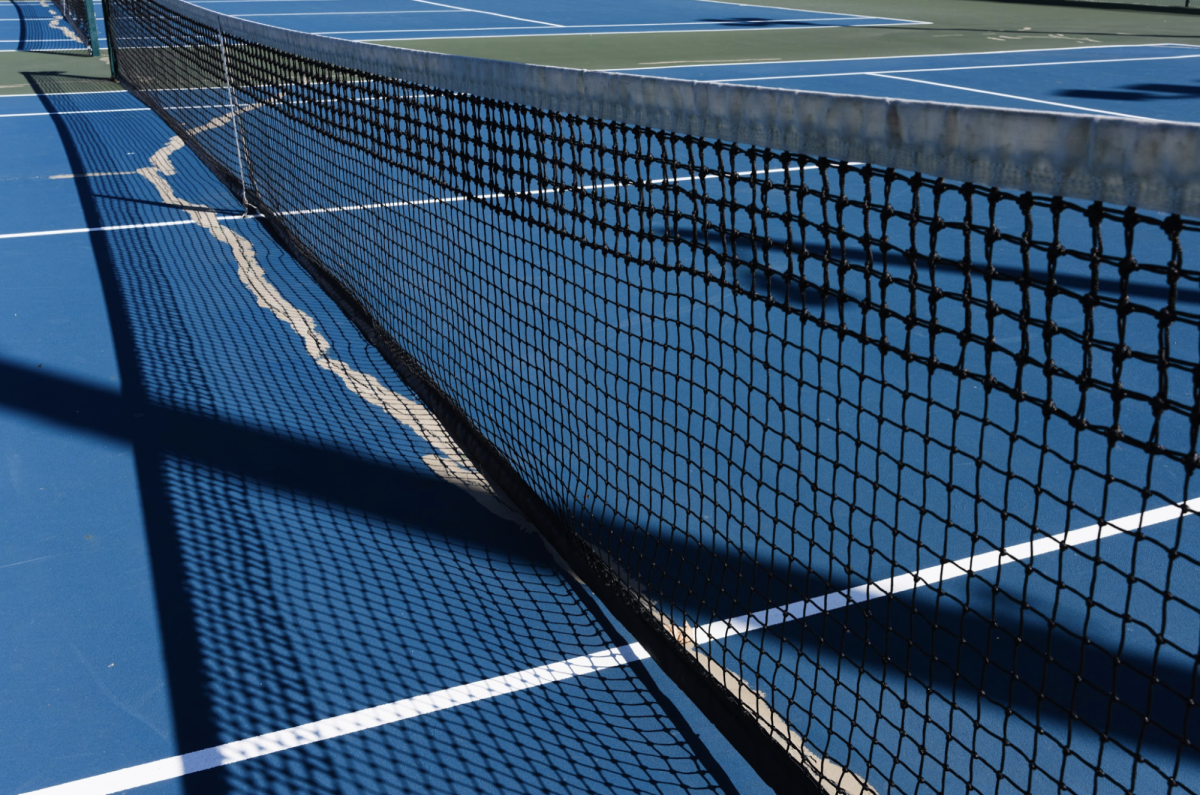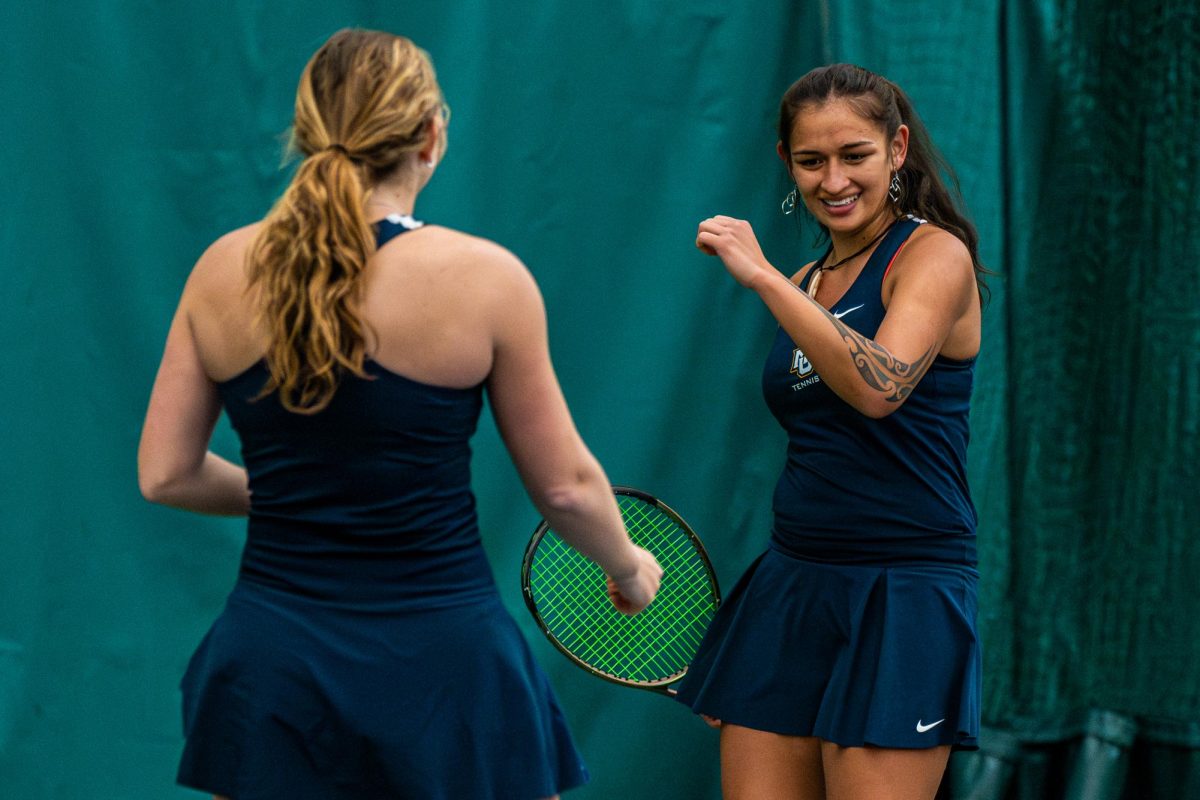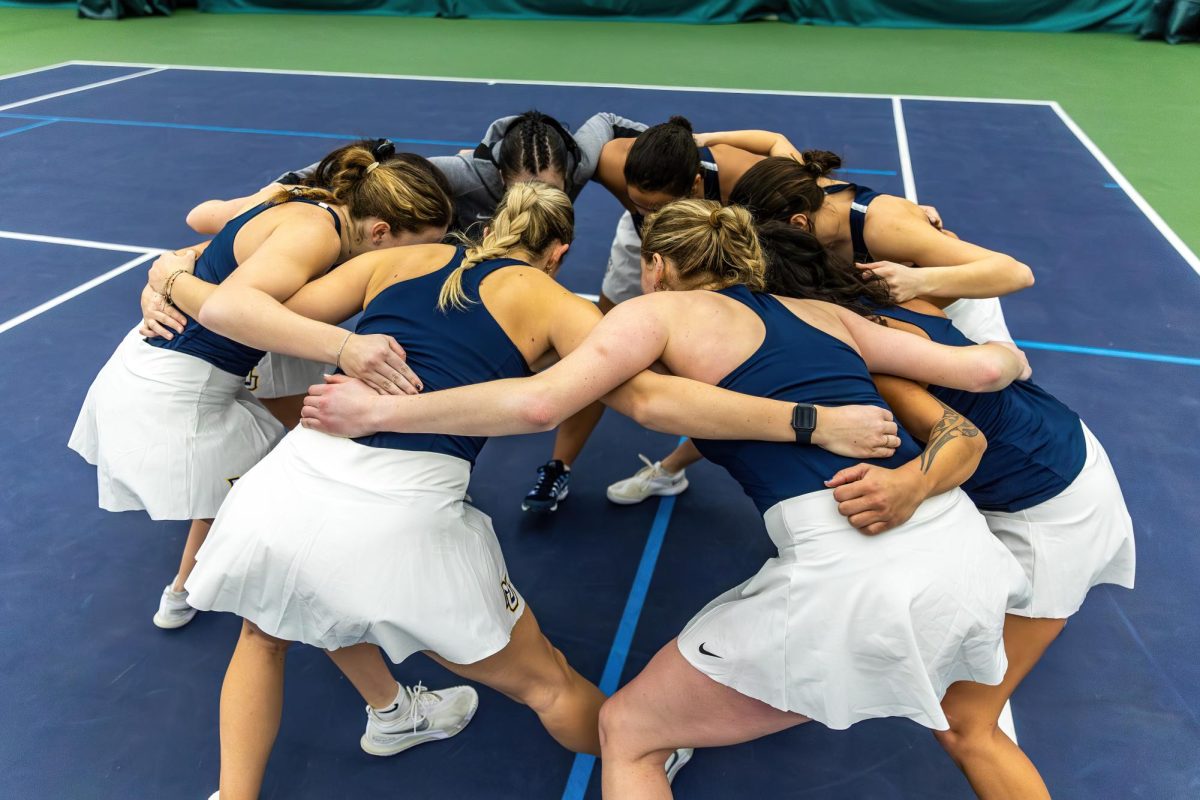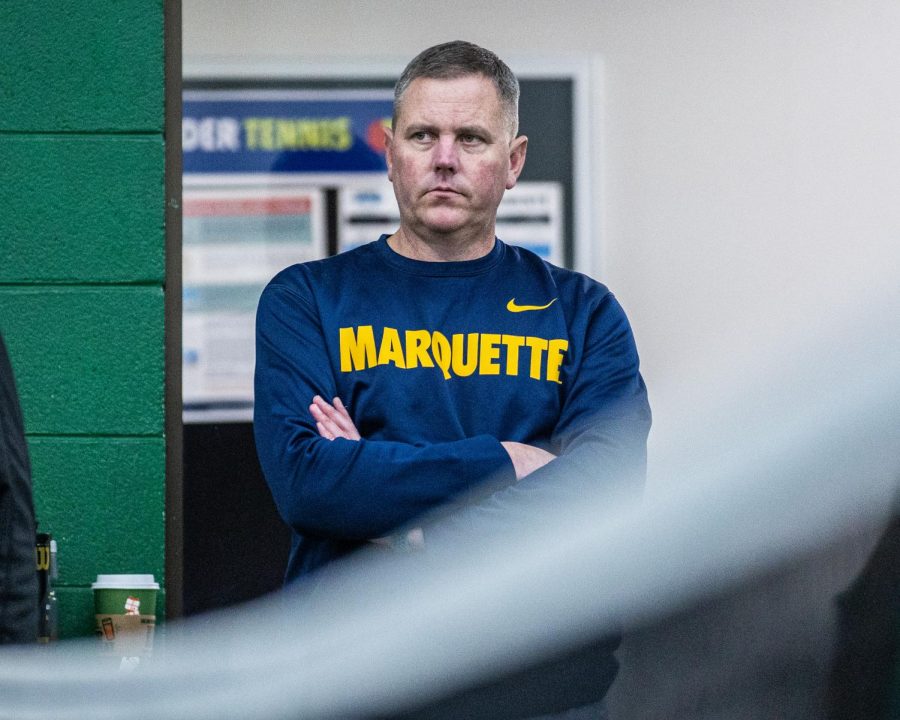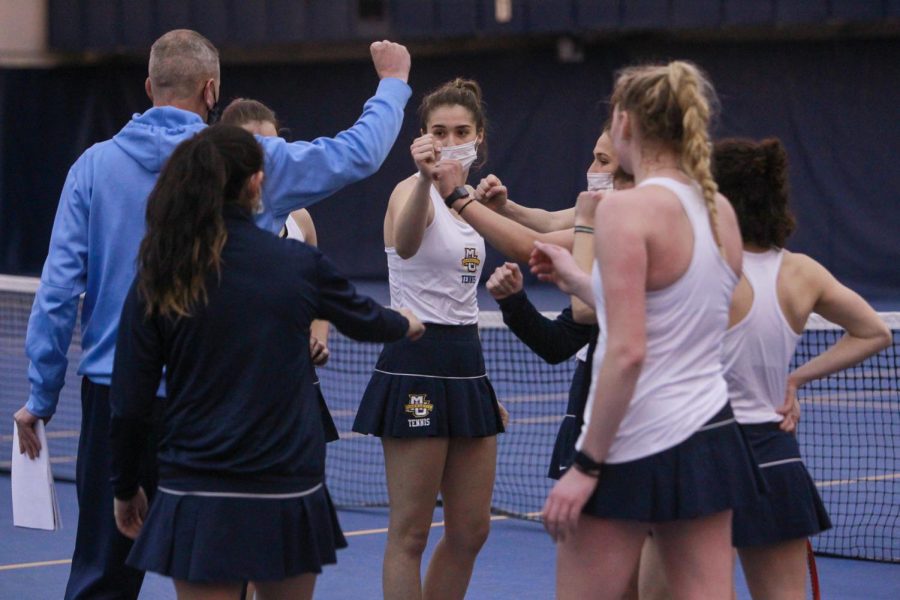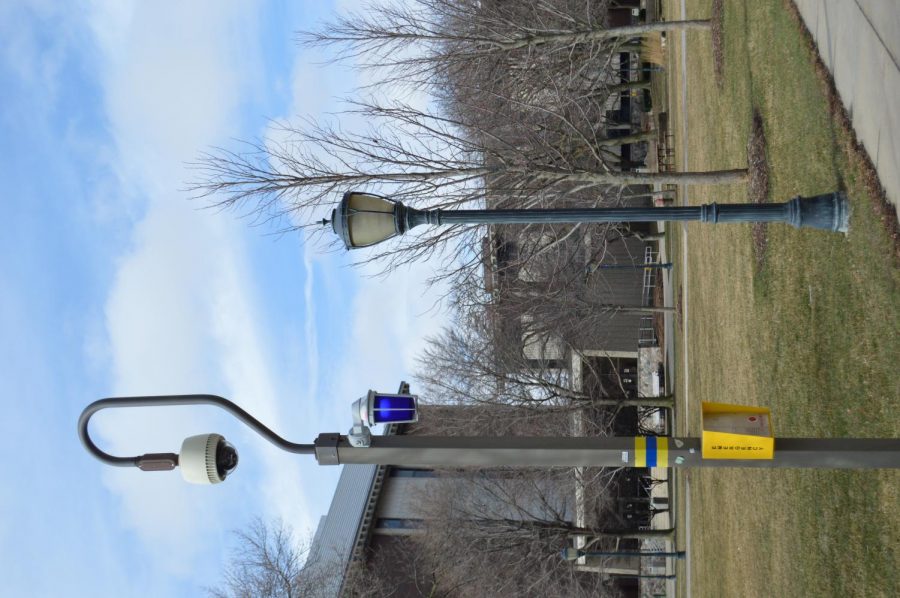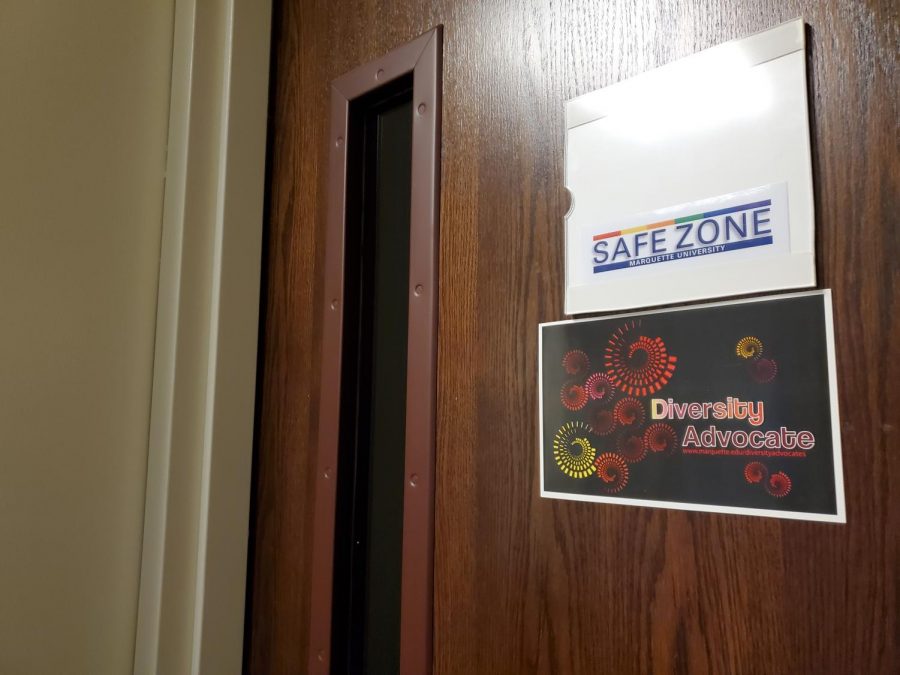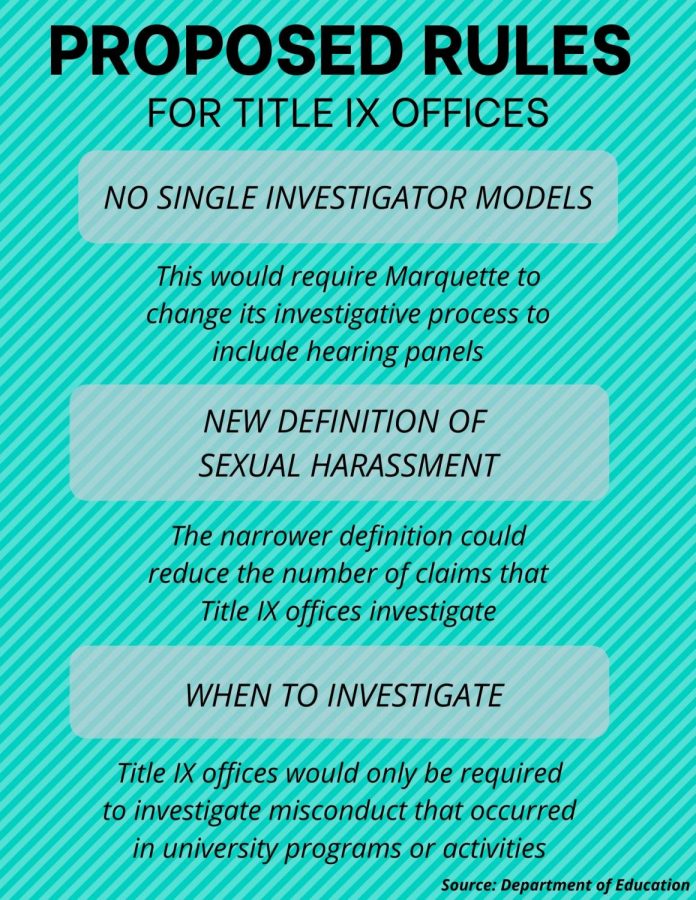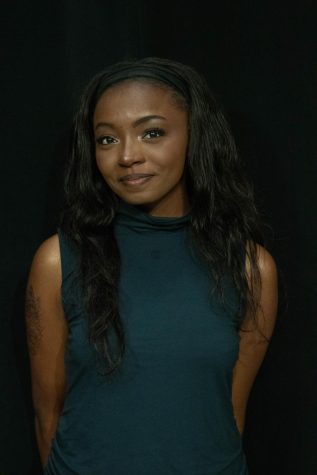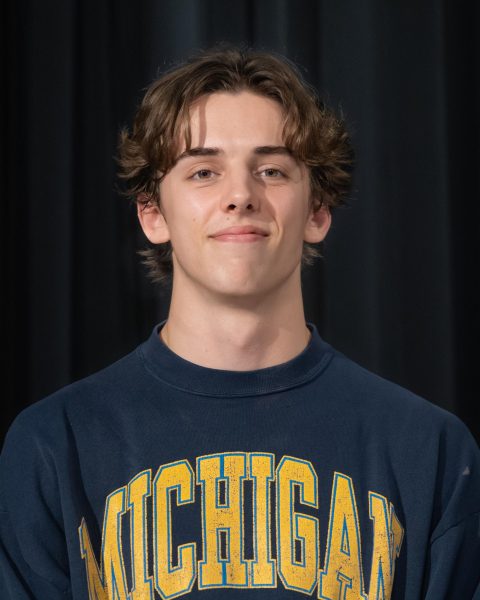She is known to many as Dr. Anne Hanneken ‘78, vitreoretinal surgeon and associate professor of Molecular and Experimental Medicine at The Scripps Research Institute whose work has been celebrated in notable publications such as The Wall Street Journal.
But before she was an exceptional doctor whose research led her on a six-year quest to bring ‘dead eyes back to life,’ she was just a young girl from Milwaukee’s Northside with a love for tennis.
Her passion, which started in the 8th grade, would later positively impact the lives of those she had never met.
In the neighborhood where she grew up, there was a public tennis club that exposed her to people from all walks of life.
“I met players of all ages, all nationalities, all walks of life. We socialized and played tennis all day and into the night. College players, high school players, young and old, every walk of life… I remember hitting for hours on the backboard at these local courts and playing pickup games with everyone,” she wrote.
She remembered prominent players would often stop by and play alongside community members, including a Davis Cup winner. The Davis Cup is awarded to the winner of an annual international lawn tennis tournament.
“Lots of great players would come by, including an older player who was a former Davis Cup player from Czechoslovakia. People would all stop playing to watch him practice. Every once in a while, he would practice with me and give me advice. Those were special moments,” she wrote.
Her brother, Dave Hanneken, a professor in the College of Communication, said he remembered the dedication she had when it came to tennis. Alongside their two other siblings, Dave Hanneken would shovel snow off tennis courts so that she could practice.
“What’s funny about my sister was snow didn’t stop her. She would recruit my brother, sister and I and we would walk four blocks to Wick Field…She recruited us to shovel the area where she could hit it against the backboard…and we always went” Dave Hanneken said.
A Short History of Title IX and its influence on women’s sports
On June 23, 1972, President Richard Nixon signed into law the Title IX of the Education Amendments of 1972. This law was not only groundbreaking but transformative for girls and women in the United States. This law prohibits discrimination based on sex in any educational program or activity receiving any type of federal financial aid.
Before this, The Civil Rights Act of 1964 was signed into law by President Lyndon Johnson on July 2, 1964. This law prohibits discrimination on the basis of race, color, religion, sex or national origin. Originally, the legislation did not include the mention of discrimination based on sex, but, women continued the fight for equal rights.
One of those women was U.S. Representative Patsy T. Mink of Hawaii who co-authored, sponsored and introduced the law to Congress. Following her death, Title IX was renamed the Patsy Takemoto Mink Equal Opportunity in Education Act.
Because athletics were considered educational programming and activities, Title IX opened the door for women in sports in ways that were not accessible before. The impact of Title IX includes scholarships allocated to women athletes, equal treatment of teams and equal participation.
Although the legislation was signed into law two years before Dr. Anne Hanneken entered college, in 1974, Marquette did not yet have a women’s team.
This didn’t stop her.
Upon her arrival to Marquette in 1974 where she studied chemistry, she tried out for the men’s tennis team. After a few competitive matches against the players on the team, she was accepted as the 9th player out of 12. She played singles and doubles.
“I remember that the quality of tennis was great on the men’s team, and much better than any of the tennis that I played in the past. We had an assistant coach named Rick Vetter who was a top regional player and a pro at a local tennis club. He raised the caliber of everyone’s game and pushed us in practice,” she wrote.
Although there was a continuous movement for women’s equity in sports across the nation, at the time, this was not her primary focus.
“I was just thrilled to be playing tennis and that was the extent of it. I really wanted to play college tennis,” she wrote.
Dr. Anne Hanneken credits this to her days at the public tennis club in her neighborhood.
“You have to realize that we all played together at the local courts, young and old, men and women. There was no discrimination based on age, sex or ability in our club. I never experienced any resistance playing in tennis matches at the local courts where men and women would team up on a regular basis. It was natural for me to play with people of all ages, men or women, it didn’t matter,” she wrote.
She saw playing tennis with men as a thrilling obstacle.
“The men’s games were faster and more of a challenge. I liked the greater challenge and it raised the quality of my game. That was my tennis experience and I took that mindset with me to college,” she wrote.
Hope on the Horizon
After playing on the men’s tennis team for one season, Anne spoke often about a women’s tennis program at Marquette.
“I spoke to Chas Mulcahy often about the possibility of building a women’s team and he kept encouraging me that a women’s team would be created. Someone asked me to outline a program, recommend a coach and give them suggestions for my vision of the program so I made recommendations for a coach,” she wrote. “I don’t remember much more about the plans that I drafted but I heard there was movement in the athletic department to start a program.”
Chas Mulchay ‘59 played on the Marquette men’s tennis team from 1956-’59. He believed Hanneken was the future of women’s tennis at Marquette.
“Anne was a tremendous, dedicated, talented and competitive athlete. She started Marquette women’s tennis before there was a team…She won matches and in the process became a legendary presence initiating women’s tennis when Marquette started its women’s program the following year – 1975,” Mulchay wrote.
To Mulchay, Dr. Anne Hanneken played a key role in launching the Marquette women’s tennis program which went on to win multiple conference championships and successfully compete in the NCAA women’s tennis championships.
With a blessing from the then-athletic director of Marquette, Al McGuire, Mulchay, alongside George Gasper ‘58 and John Roethle, the Milwaukee Tennis Classic was born. Its creation cemented a commitment Mulchay made to Dr. Anne Hanneken.
“I remember encouraging Anne at that time and promising her that would do everything we could to promote the women’s tennis program. We fulfilled that commitment to Anne in 1975 when we launched the First Annual Milwaukee Tennis Classic with Athletic Director Al McGuire as a national intercollegiate men’s and women’s tennis tournament. Women’s tennis achieved equality with the MTC,” Mulchay wrote.
In 2009, Marquette women’s tennis players Christina Ruiz and Rachel Hush won the National MTC women’s doubles championship. Seven years later, Marquette women’s tennis players Diana Tokar and Paula Tormos Sanchez took home the women’s doubles trophy in 2016.
Discussing Dr. Anne Hanneken’s achievements and indirect impact sparked a new thought for Dave Hanneken.
“…As I think back at it now, I’m even more impressed. Because in today’s world, it doesn’t seem like that would be all that much of a radical step to say ‘hey, I want a shot here and I’m going to go up for the guy’s team.’ Right? But when you really think about it and put yourself in that 1970s world, I think that was one of the boldest things I can ever imagine somebody doing,” Dave Hanneken said.
Challenges and triumphs for Marquette women’s tennis
Former men’s tennis player, Ross Sprovieri and his wife Susan donated $1 million gift to establish endowed tennis scholarships for Marquette’s NCAA men’s and women’s tennis programs in November 2023. This is the largest-ever gift awarded to the university’s tennis program.
Two months later, a scholarship change in the program was announced.
In January 2023, it was announced that Marquette men’s and women’s tennis and men’s and women’s track & field would be taken down to non-scholarship programs by the 2025-2026 academic year. This decision was made following budget cuts made within Marquette Athletics.
“We’re in year three of a multi-year process,” Marquette Vice President and Director of Athletics Bill Scholl said to the Marquette Wire last year. “Unfortunately, the budget realities forced us to make some moves and those are some of the moves we made.”
Although this decision does not impact Dr. Anne Hanneken and other tennis alumni directly, Mulchay still reflects on
“I feel bad for Anne and all Marquette women’s tennis alumni as Marquette Athletics moves ahead with also downgrading women’s and men’s track & field and cross country scholarships. Non-revenue sports have been severely damaged by Marquette Athletics. It will be difficult to restore those sports but a new administration hopefully will accomplish that objective,” Mulchay wrote.
Outside of scholarships, senior women’s tennis player Sarah Badawi said women’s tennis is facing other challenges, including attendance.
“I think one of the most important factors that are challenges women are facing is the amount of people and crowds that come to their matches versus how many more people care about men’s matches and men’s tennis. And this can happen to like the collegiate level or at the professional level,” Badawi said.
Badawi’s teammate, junior women’s tennis player Tiera Jarmond concurred with Badawi’s sentiments.
“That’s definitely true. We see it every weekend at home matches…I’m sure that a lot of other women’s sports that have a men’s sport counterpart feel that way – that on the surface level – there so much more care for the men’s side of the sport, even though we are putting in the same amount of work and effort,” Jarmond said.
As Marquette’s men’s and women’s tennis programs prepare for a major shift over the next year, Badawi is not only looking to the future but is grateful for what the team is today.
“This year is one of the first years we’ve been close to the men’s team. In previous years, we didn’t see that kind of support within each other…Marquette tennis is everything to me, and I’ve had a great experience here with the coaches and with the girls,” Badawi said.
Jarmond was also grateful – not only for the team — but for Dr. Anne Hanneken’s tennis legacy, too.
“Without her joining the team and finding that spot, who knows – we probably wouldn’t have a chance to be here. So you can open a door for yourself that will open doors for 10s of hundreds of others,” Jarmond said.
As for Dr. Anne Hanneken herself, she hopes women’s tennis players at Marquette continue to enjoy themselves – despite the obstacles faced by current and future players.
“I cherished my time on the team and hope women continue to enjoy the opportunities that I cherished when I was in college. Competition at a high level is an enriching experience for devoted players, for it teaches resiliency, fortitude and strength, so many valuable skills that help shape someone’s future,” Dr. Anne Hanneken said.
So, this young girl from Milwaukee – who always had her eye on a goal – became a prominent, well-respected vitreoretinal surgeon and left behind a legacy of making space for others at Marquette.
This story was written by Hope Moses. She can be reached at [email protected].


